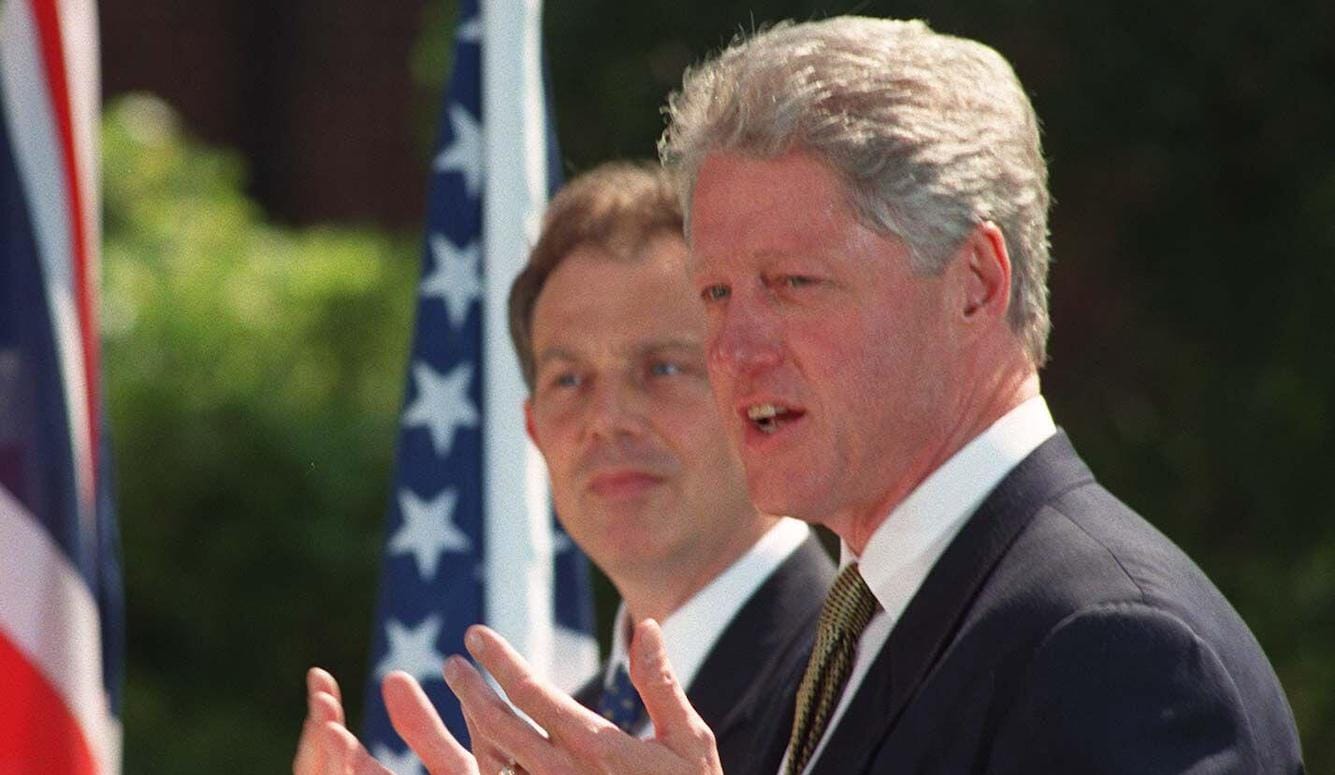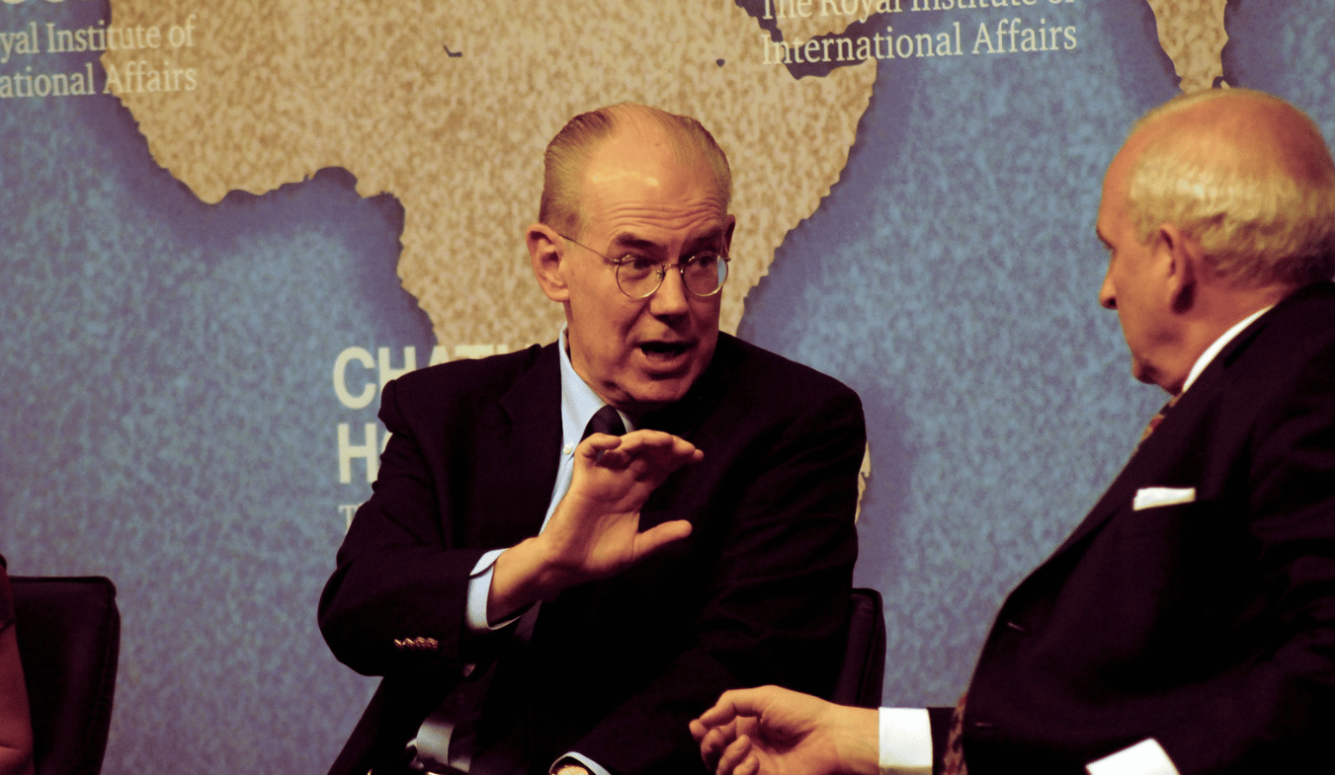Politics
The Rise and Fall of Liberal Internationalism
The post-Cold War democratic wave has receded and the free world now appears to be learning from authoritarian regimes instead of the other way around.

The is the first instalment of a two-part essay.
I.
When the Soviet Union collapsed, the most dangerous source of conflict in the world suddenly and unexpectedly evaporated. While the immediate post-Cold War era was a period of extraordinary optimism in the liberal-democratic world, there were also warnings that new global conflicts awaited. The realist international-relations scholar John Mearsheimer wrote an essay for the Atlantic in 1990 titled “Why We Will Soon Miss the Cold War,” in which he argued that the dissolution of the Soviet Union would lead to a breakup of NATO and increase the chances of war in Europe. In 1994, Robert D. Kaplan published an essay in the same magazine titled “The Coming Anarchy” that presented an even darker vision of the future, in which “scarcity, crime, overpopulation, tribalism, and disease are rapidly destroying the social fabric of our planet.”
The optimists had their own illusions, such as the belief that liberal market reforms in China would produce greater political freedom. In a 1997 speech, President Bill Clinton said he hoped to see the emergence of a China that was “stable, open, and non-aggressive, that embraces free markets, political pluralism, and the rule of law, that works with us to build a secure international order.” While these hopes now sound like fantasies as an increasingly aggressive and totalitarian China menaces Taiwan, many critics of post-Cold War US foreign policy were wrong to imply that China’s rise could have been prevented. China’s massive population and rapidly growing economy ensured it would become a rival superpower one way or the other. Clinton closed his 1997 speech by arguing that the United States should operate on the assumption that China would eventually take its “rightful place as a full and strong partner in the community of nations. … We have to take that chance.” This wasn’t an unreasonable position at the time, as there was a risk that fears of a confrontation with China—which Samuel Huntington predicted in his 1996 book The Clash of Civilizations and the Remaking of World Order—could become a self-fulfilling prophecy.

It’s easy to dismiss the liberal ambitions for the post-Cold War world as naive from our perch atop a mountain of hindsight. In 2000, Clinton said efforts to censor the Internet would be like “trying to nail Jello to the wall,” which was a widely held view at the time. He had just witnessed the greatest global movement from authoritarianism to democracy in history, and revolutionary technology like the Internet seemed to be ushering in a new age of political openness and cultural transmission. He couldn’t have anticipated what is now known as the Great Firewall in China and all the ways the CCP would use the Internet as a tool for repression rather than liberation. The effort to integrate China into the liberal international order may well have been a risk worth taking. While China has had catastrophically bad rulers like Mao Zedong, it has also been led by more pragmatic leaders like Deng Xiaoping. The rise of a Chinese ultranationalist like Xi Jinping—who has done more to consolidate totalitarian control than any ruler since Mao—wasn’t inevitable.
Other parts of Clinton’s speech now seem out of date because the United States has taken a turn away from the defence and promotion of democratic values around the world. Clinton celebrated the global spread of democracy and human rights: “From Poland to South Africa, from Haiti to the Philippines, the democratic saga of the last decade proves that these are not American rights or Western rights or developed world rights, they are the birthrights of every human being enshrined in the Universal Declaration of Human Rights.”
This was a belief also held by the leaders of other liberal democracies in the years following the Cold War. In a 1999 speech in Chicago, British Prime Minister Tony Blair summarised his liberal-internationalist foreign policy, which he described as a “result of a wide range of changes: the end of the Cold War, changing technology, [and the] spread of democratic values.” He continued:
Globalisation has transformed our economies and our working practices, but globalisation is not simply economic. It is also a political and a security phenomenon. We live in a world where isolationism has ceased to have a reason to exist. … We are witnessing the beginnings of a new doctrine of international community. By this I mean: the explicit recognition that today, more than ever before, we are mutually dependent; that national interest is to a significant extent governed by international collaboration; and that we need a clear and coherent debate as to the direction of this doctrine as it takes us in each field of international endeavour.
Blair believed the West’s “values and interests” had merged. “If we can establish and spread the values of liberty, the rule of law, human rights, and an open society, then that is in our national interest, too,” he said. Like Clinton, Blair thought it was possible that liberal democracy would be embraced in countries that would later build their foreign policies around resistance to it. While Clinton looked forward to a “stable, open, and non-aggressive” China, Blair hoped to see the emergence of a “democratic, outward-looking, prosperous Russia.” Although it would take many years for the optimistic universalism of the post-Cold War era to fade, this degeneration began around the turn of the century. Blair didn’t realise that his speech wouldn’t be regarded as the inauguration of a new era of international community—but as a valediction. The late 1990s would prove to be the high water mark for liberal internationalism.
Two and a half years after Blair’s speech in Chicago, the 11 September attacks fundamentally reshaped US foreign policy in the 21st century. While NATO participated in the Afghanistan War after invoking the Article 5 collective-defence provision for the first and only time in its history, the invasion of Iraq in 2003 split the alliance. As the Iraq War and the global war on terror dragged on, the liberal interventionism Blair called for in Chicago—he opened the speech with a case for the NATO campaign in Kosovo—was viewed with growing scepticism and hostility. This helped to clear the way for President Donald Trump’s America First foreign policy, which resists what he has described as the “globalist neocon establishment that is perpetually dragging us into endless wars, pretending to fight for freedom and democracy abroad.” The antipathy toward neoconservative foreign policy and neoliberal economics—which prioritises free trade, and which Trump has railed against for decades—created resistance to globalism more broadly.
Establishment critics of the interventionist US foreign policy of the 2000s like President Barack Obama—who ran on his opposition to the Iraq War in 2008—still made the case that the United States is an “indispensable nation” with a responsibility to defend democracy and human rights around the world. But Trump rejects this project and argues that it was a lie from the very beginning. Trump doesn’t believe values should have anything to do with foreign policy, which is why he wants to replace the liberal international order with a transactional, zero-sum approach to the world that operates according to an extremely narrow set of interests.






